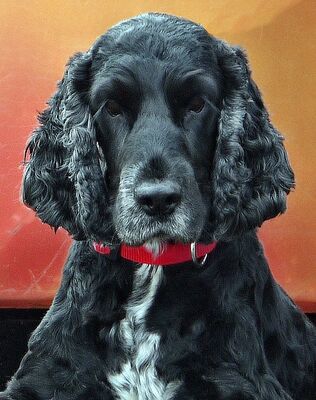Looking for mirrorless camera for experienced photographer.
Nov 25, 2020 11:23:30 #
DMF wrote:
Your suggesting 4/3 will eventually not be a significant step beyond cellphones. Indeed, at the rate the cell phone is moving staying with the full frame makes sense.
Your argument could equally be applied to FF. In other words it is brainless drivel.

Nov 25, 2020 11:58:36 #
TriX wrote:
Nikon D750 high ISO/low light: 4183 br Canon 6D: 4... (show quote)
I have not tried to prove such a thing or anything. I quoted only professional camera reviews. I would absolutely agree with you that the larger the sensor, the better, but can you easily measure how much better when a camera is in the hands of a capable photographer? and is the difference to be considered when this topic is about saving real weight? when that might mean the difference between shooting pics or not shooting pics?
When you start quoting photons to protons, and relate this to sensor size - have you considered the size of a cellphone sensor? or the sensor in many "Travel" cameras?
I make up for the differences with a best understanding of how to use my camera. These days so many photographers make up for that lack of understanding by spending $120 a year and much time in PS/LR.

Nov 25, 2020 14:43:30 #
Delderby wrote:
I have not tried to prove such a thing or anything... (show quote)
I’m some respects, you are preaching to the choir. I use FF, APS-C and occasionally a cellphone - horses for courses. I went from APS-C to FF for the high ISO performance, and have NEVER been sorry, but I find that my Fuji APS-C is acceptable. I shoot a lot of available light indoor high ISO and indoor events/sports, and I tend to shoot fast lenses wide open for limited DOF/subject isolation. Without much noise reduction, the FF is very capable to ISO 12,800 without objectionable noise. I usually limit the Fuji to 6400, and I wouldn’t be willing to live with less. The Fuji, with an equivalent lens, weighs half what the FF does, and that is enough reduction and enough compromise in performance for me.
Nov 25, 2020 15:06:23 #
Mike's Camera in Denver offers the Olympus 4/3 systems for loan so that you can really try them out before buying. Check out their site: https://testandwow.getolympus.com/en_US/welcome. And no, I don't work there!
Nov 25, 2020 15:26:28 #
Besperus
Loc: Oregon
DMF wrote:
My wife is an experienced photographer currently using a Nikon 750. Looking for a mirrorless camera, weight has become very important, these typically do not go together any better than price. We do make large prints. While we have only owned Nikons, making the change to mirrorless makes changing manufacturer easier. All guidance and ideas will help my search. Thanks, Doug
I switched from Canon to Olympus due to the lens factor. The they sold the camera company to JIP. The biggest problem has been the convoluted menus system. Lenses are very compact and very sharp. But with an investment in Nikon, there are newer mirrorless 2nd versions and a new compact camera all FF mirrorless. Other folks here will tell you better than I can. But I’m not sorry I switched. And Panasonic has those Lieca lenses...
Nov 25, 2020 16:32:44 #
This really helped. Supports where we are headed. Keeping the larger format and buying the smaller format for “walking around”. Thanks.
Nov 25, 2020 17:00:42 #
TriX wrote:
I’m some respects, you are preaching to the choir.... (show quote)

Although I do not wish to preach - i tried to help with a solution to the OPs problem. I saw a genuine possibility within my own experiences.
Nov 25, 2020 17:22:39 #
Delderby wrote:
Although I do not wish to preach - i tried to help with a solution to the OPs problem. I saw a genuine possibility within my own experiences.

Although I do not wish to preach - i tried to help with a solution to the OPs problem. I saw a genuine possibility within my own experiences.
I think we have both offered reasonable weight saving alternatives that will produce quality results.
Cheers.
Nov 25, 2020 18:29:48 #
If weight is the paramount issue...look no further than the Sony A7C.
It's wickedly small and light AND full frame.
You won't be giving up anything as far as dynamic range, bokeh and low light capability.
Plus Sony has the deepest native lens line in the market today.
Here's a review to get you started. It's a winner.
It's also the death knell for small sensor cameras.
https://newatlas.com/photography/sony-alpha-7c-smallest-lightest-full-frame/
It's wickedly small and light AND full frame.
You won't be giving up anything as far as dynamic range, bokeh and low light capability.
Plus Sony has the deepest native lens line in the market today.
Here's a review to get you started. It's a winner.
It's also the death knell for small sensor cameras.
https://newatlas.com/photography/sony-alpha-7c-smallest-lightest-full-frame/
Nov 25, 2020 20:14:04 #
After much research I have reached the same conclusion. Pleased to have someone who is thinking the same way, gives me a little confidence in my logic. :-)
Received a large number of responses, thanks Doug
Received a large number of responses, thanks Doug
Nov 25, 2020 20:32:22 #
wdross
Loc: Castle Rock, Colorado
Besperus wrote:
I switched from Canon to Olympus due to the lens factor. The they sold the camera company to JIP. The biggest problem has been the convoluted menus system. Lenses are very compact and very sharp. But with an investment in Nikon, there are newer mirrorless 2nd versions and a new compact camera all FF mirrorless. Other folks here will tell you better than I can. But I’m not sorry I switched. And Panasonic has those Lieca lenses...
The main menu can be challenging until one gets use to it. But the Super Control Panel is very easy to use for most of the functions that we all use most of the time. Next time you want to change a function, try using the Super Control Panel. Double click "OK", pick / touch the function, change the function, go back to shooting. It should be just that quick.
Nov 25, 2020 21:38:25 #
Canisdirus wrote:
If weight is the paramount issue...look no further than the Sony A7C.
It's wickedly small and light AND full frame.
You won't be giving up anything as far as dynamic range, bokeh and low light capability.
Plus Sony has the deepest native lens line in the market today.
Here's a review to get you started. It's a winner.
It's also the death knell for small sensor cameras.
https://newatlas.com/photography/sony-alpha-7c-smallest-lightest-full-frame/
It's wickedly small and light AND full frame.
You won't be giving up anything as far as dynamic range, bokeh and low light capability.
Plus Sony has the deepest native lens line in the market today.
Here's a review to get you started. It's a winner.
It's also the death knell for small sensor cameras.
https://newatlas.com/photography/sony-alpha-7c-smallest-lightest-full-frame/
But what about the weight of the FF lenses and the balance/grip with the smaller body?
Nov 25, 2020 22:07:45 #
TriX wrote:
But what about the weight of the FF lenses and the balance/grip with the smaller body?
It ends up the same as small sensor cameras. Big lenses always weigh more.
Sony has a lot of light lenses.
What Sony has done in a single stroke has taken away the size and weight...while keeping all of the advantages of a full frame sensor.
They won't stop there either...they never do.
I suspect Canon will follow suit.
Bigger sensors in smaller bodies.
Nov 25, 2020 22:12:55 #
wdross
Loc: Castle Rock, Colorado
Canisdirus wrote:
It ends up the same as small sensor cameras. Big lenses always weigh more.
Sony has a lot of light lenses.
What Sony has done in a single stroke has taken away the size and weight...while keeping all of the advantages of a full frame sensor.
They won't stop there either...they never do.
I suspect Canon will follow suit.
Bigger sensors in smaller bodies.
Sony has a lot of light lenses.
What Sony has done in a single stroke has taken away the size and weight...while keeping all of the advantages of a full frame sensor.
They won't stop there either...they never do.
I suspect Canon will follow suit.
Bigger sensors in smaller bodies.
For the same angle of view and aperture, the lenses are not lighter than most APS-Cs lenses and probably none of the 4/3rds lenses. Yes, they are lighter than previous FF lenses, but still will produce a system heavier than APS-C and 4/3rds.
Nov 25, 2020 22:40:35 #
Canisdirus wrote:
It ends up the same as small sensor cameras. Big lenses always weigh more.
Sony has a lot of light lenses.
What Sony has done in a single stroke has taken away the size and weight...while keeping all of the advantages of a full frame sensor.
They won't stop there either...they never do.
I suspect Canon will follow suit.
Bigger sensors in smaller bodies.
Sony has a lot of light lenses.
What Sony has done in a single stroke has taken away the size and weight...while keeping all of the advantages of a full frame sensor.
They won't stop there either...they never do.
I suspect Canon will follow suit.
Bigger sensors in smaller bodies.
Not really - totally depends on the lens, which is still the driving factor. Example: let’s take the classic and very useful 70-200 f2.8 which weighs 1480G + 505G for the body = 4.375 lbs. Contrast that with a Fuji X-T4 at 525G and the equivalent Fuji 50-140 f2.8 APS-C lens which weighs 995G and you’re at 1520G or 3.35lbs - over a pound lighter.
It’s exactly the same result as trying to save weight by switching to mirrorless FF from DSLR, the body may be a little lighter, but the FF lens drives the total. You can cherry pick one of the few new lighter FF lenses, but in the end, if you want a significant weight reduction, you are driven to a smaller format.
If you want to reply, then register here. Registration is free and your account is created instantly, so you can post right away.



